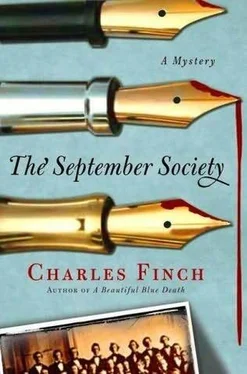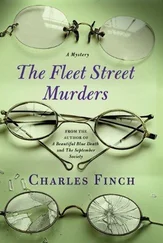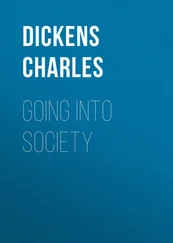Charles Finch - The September Society
Здесь есть возможность читать онлайн «Charles Finch - The September Society» весь текст электронной книги совершенно бесплатно (целиком полную версию без сокращений). В некоторых случаях можно слушать аудио, скачать через торрент в формате fb2 и присутствует краткое содержание. Жанр: Исторический детектив, на английском языке. Описание произведения, (предисловие) а так же отзывы посетителей доступны на портале библиотеки ЛибКат.
- Название:The September Society
- Автор:
- Жанр:
- Год:неизвестен
- ISBN:нет данных
- Рейтинг книги:4 / 5. Голосов: 1
-
Избранное:Добавить в избранное
- Отзывы:
-
Ваша оценка:
- 80
- 1
- 2
- 3
- 4
- 5
The September Society: краткое содержание, описание и аннотация
Предлагаем к чтению аннотацию, описание, краткое содержание или предисловие (зависит от того, что написал сам автор книги «The September Society»). Если вы не нашли необходимую информацию о книге — напишите в комментариях, мы постараемся отыскать её.
The September Society — читать онлайн бесплатно полную книгу (весь текст) целиком
Ниже представлен текст книги, разбитый по страницам. Система сохранения места последней прочитанной страницы, позволяет с удобством читать онлайн бесплатно книгу «The September Society», без необходимости каждый раз заново искать на чём Вы остановились. Поставьте закладку, и сможете в любой момент перейти на страницу, на которой закончили чтение.
Интервал:
Закладка:
There was a long moment of stunned silence in the room. Then Lady Jane had done something Lenox was already grateful for, even in the dark pessimism of the train ride. She had said, “Well, Charles, you had better pack your bag and go.”
It didn’t seem like much, but it was one of those small instances when a friend’s decisiveness means the world. She had bothered over his coat, his hat, his suitcase, tut-tutting, asking Graham for an article he had overlooked, while McConnell whipped back home to get his things. Then, when Lenox had tried to thank her, she had said, “No time for that-off with you, and we’ll speak soon,” and hustled him out to the waiting hansom.
Now McConnell was in the seat across the compartment, having a sip from his flask and reading over Lenox’s notes.
“Rum business,” he said, sealing the flask. He smiled weakly at his own pun.
“I’m to blame,” Lenox answered dully. “I made two errors. I shouldn’t have left Oxford, and I shouldn’t have delayed in contacting the police.”
“Perhaps the first, but not the second,” McConnell answered. “Lady Annabelle asked you to keep it from the police.”
“Lady Annabelle’s not a detective, Thomas.”
“And you’re not the boy’s mother.”
Lenox shrugged, ignoring the kindly look in his friend’s face, and they passed the rest of the trip in silence.
When they arrived in Oxford, they took a cab straight to Lincoln. There was general alarm on the Front Quad, students ringed around the lawn in small groups, and the dons standing above them on the steps leading to the chapel. Everywhere were worried faces and anxious voices.
Lenox spotted Stamp, who was as pale as a ghost. “They’re saying it was Payson, poor chap. Somebody garroted him. I shipped my train.”
“I’m so sorry,” Lenox said.
“It’s not your fault, of course,” said the young man, brushing the hair away from his face.
“What do you plan to do?”
“Unless I’m needed, I’m leaving in ten minutes-I’ve hired a coach. No use messing about any longer. What a fearful thing to happen!”
They bade each other a quick good-bye. As Stamp wandered away, shaking hands with a few of his classmates, the head porter came over to Lenox and McConnell. He was more collected, subdued, somber, but with an unmistakable efficiency in his demeanor.
“No fault of your own, Mr. Lenox,” he said.
“How did they know it was Payson?”
“It was him, though they didn’t confirm so for some time. The body was badly mauled, and there was a terrible amount of blood. The hair on his head was cut close, nearly shaved-as a disguise, we all suppose. But once he was clean somebody identified him, I think Professor Hatch, perhaps, or Master Banbury. It’s all settled now. Confirmed by his clothes, his papers, his billfold, his eyeglasses, his brand of cigarettes. The family is on its way.” He sighed. “Awful business, of course. At Lincoln!”
McConnell shook his head sympathetically. “A horrifying sort of death, strangulation. It takes looking your victim in the face.”
Lenox nodded. He saw four bobbies at the other end of the quad and after shaking Kelly’s hand walked toward them.
“Hello,” he said when he reached them. “I’m Charles Lenox.”
The one who appeared to be in charge said, “May we help you?”
“I’ve been looking into this matter in the past few days.”
“Ah, that one,” said the same man. As he turned away, he said, “Might’uv told us before just now. Might’uv helped.”
“Well, I’d like to help now, if I may.”
The man looked at him scornfully. “Come by the station, then,” he said. “Ask for Goodson, he’s in charge of this investigation. But don’t think of looking at the crime scene.”
As the bobby walked away, McConnell said, “Don’t be too hard on yourself, Charles.”
Lenox grimaced. “Look-we’ll just have to figure it all out, that’s all.”
“Damn right,” said McConnell tersely.
“Can you devise a way to have a look at the body?”
“May be hard.”
“If you can think of a way to do it-make friends with the coroner, offer to assist him, anything-give it a chance, would you?”
“That’s the spirit. Off I go. I’ll be at the Randolph Hotel tomorrow morning if you’d like to have breakfast. Say eight? All right. And really, don’t be too angry with yourself. You were only gone eight hours.”
The two men parted, while Lenox debated with himself what his next move should be and thought the case over.
He would have to start with Professor Hatch and the head porter. Somehow neither seemed to him like the type to murder a man in cold blood, but then again neither seemed entirely guileless. For now, he would go back to the hotel and think over what he already knew, searching for the line of clues that would lead him irrevocably toward the truth. Surveying the quad one last time, he turned on his heel and went out of the gate, into the sudden and startling quietness of Turl Street.
CHAPTER FIFTEEN
T he Turf Tavern was bright and loud with merriment, full of students in the back bar sipping pints of ale and the local gents sitting in the front bar with their strong cider. Lenox remembered that division between the old townsmen and the young university ones, the two sets united by an unspoken love for Sally, who had been the serving girl then. Lenox’s friend George Caule had always stopped into the front room to have a drink with old Hedges, who had once run the tuck-shop. Their friendship had sprung up eerily: over a ghost.
The story was that Caule had been studying alone at the Turf in Trinity term of their first year. He was maths, was Caule, and had the legendarily terrifying Mead as his don at Balliol. Lenox strained to remember what had occurred. Had he been-yes, that was right, he had been smoking a cigarette to wake himself up when at last he dozed off, the last person in the deserted room. Just as he had dropped the cigarette onto the tinder pile by his feet, a girl of perhaps ten had brushed by him, nudging him just enough on the arm to wake him up. He had quickly stamped out the fire and then left for the night, realizing he was too tired to study any longer.
Caule described the little girl so well-how she had blond pigtails, a dainty little dress, and a pearl and obsidian necklace, how she carried a tray of mustard jars. When he had returned the next day to thank the girl’s parents, though, nobody could identify her, and he discovered that the mustard jars had been long collected by that late hour.
Unbeaten, Caule had asked around. Only Hedges had recognized the description.
“Small girl, pigtails, blond, ten, mustard jars?” Hedges had asked in his uniquely concise speech, gruff-voiced and cautious. “To be certain. Polly Millwall. She was a year younger than me. Daughter of the last chap who owned the Turf. She died in the fire that killed them all, perhaps forty years ago. Then Edmonds bought the place.”
“Oh, I’m afraid you’ve misunderstood,” Caule had said. “I’ve-”
He broke off when Hedges pointed upward, to an exact portrait of the girl who had nudged him awake, just when he was in danger of starting the fire in the tinder pile and burning the Turf to the ground.
Lenox sighed. How the years passed! Caule was still one of his closest friends-and still swore by the story-but lived up all the way up at Stettleton Hall in Lancashire, a genial, rather broken-down place. He hadn’t been south to London in two years. As Lenox went inside, past the portrait of the blond girl that still took pride of place over the bar, he wondered for the hundredth time whether Caule had been so tired that delusion had set in or whether maybe, just maybe, something inexplicable had happened.
Читать дальшеИнтервал:
Закладка:
Похожие книги на «The September Society»
Представляем Вашему вниманию похожие книги на «The September Society» списком для выбора. Мы отобрали схожую по названию и смыслу литературу в надежде предоставить читателям больше вариантов отыскать новые, интересные, ещё непрочитанные произведения.
Обсуждение, отзывы о книге «The September Society» и просто собственные мнения читателей. Оставьте ваши комментарии, напишите, что Вы думаете о произведении, его смысле или главных героях. Укажите что конкретно понравилось, а что нет, и почему Вы так считаете.












